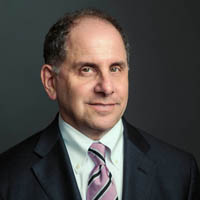When Howard Baker returned from his first trip to China in 1982, he was more like a kid who’d been on a wonderful adventure than a statesman traveling in some “official” capacity. He’d taken lots of pictures, of course, because photography was his passionate hobby, and he had lots of stories, but what I remember best is the way he answered one of my questions.
What, I asked him, was the most surprising thing he learned about the country? “Would you believe it,” he said to me, “they even eat Chinese food for breakfast!” He said it without immediately realizing the ingenuousness of the remark. Politicians who behave childishly are very common creatures in Washington, but Howard H. Baker Jr.—who died Thursday at the age of 88—wasn’t like that. At times he just expressed the wonderment and sense of discovery that we associate with the very young.
I worked for Baker as his special assistant and speechwriter when he was majority leader of the Senate, in the early 1980s. The majority leader’s office is right there in the Capitol, not in a Senate office building, and Baker never tired of, or grew indifferent to, the beautiful views of the Mall, including the Washington Monument and Lincoln Memorial, that we could see through our windows. In his mind, Washington was a place to be celebrated, and he did so with a book of his photographs. To him, it was a city with great achievements and even more potential. He taught that to those of us on his staff, and a whole lot more—about fairness, the real meaning of patriotism, and the virtues of civility and honesty.
Washington wasn’t an evil place to him, and it wasn’t a place to pretend you didn’t want to be associated with.
Unlike today’s legislators, he never tried to strike the pose of “Washington outsider.” He was proud of being a Washington insider, proud of his father’s roots in House of Representatives and of the wide swath cut by his father-in-law, Sen. Everett Dirksen of Illinois.
Yes, Baker’s first wife, Joy, was Dirksen’s daughter, and she was devoted but sometimes troubled. She struggled with alcoholism, and so that became Baker’s struggle, as well. I often witnessed at close range his gentleness with her, his patience, the way he refused to be judgmental, and the fact that he was anything but short-tempered.
I saw his sensitivity, too, in his receptiveness to the idea of opening each Monday’s session of the Senate with a poem—a poem he would read into the Congressional Record, or have placed there. Part of being a Washington insider was his enthusiasm for the ceremonial side of the Senate. He would often marvel at Robert C. Byrd’s historical lectures on the Senate floor, and he counted many friends on the other side of the aisle.
He was another rare thing in politics: someone who preferred taking pictures to being in them. He also took great pride in accomplishing something, and that’s one quality that, to me, separates him dramatically from his 21st-century successors.
I’d sometimes walk with him as he strode briskly from his office to the Senate chamber to open the day’s session. He was not a tall man, anything but lanky, but he could move quickly through those marble hallways, just as he could move very quickly on the Senate floor through red tape and obfuscation when he wanted to get something done. He was a proud practitioner of compromise, and proud, too, of his ability to bring opposing sides together rather than digging in on an issue and refusing to budge.
He didn’t go in for the hard-core partisan fighting that is now the rule of the day. Quite the opposite. He believed the best action took place between the proverbial 40-yard lines; that’s where the great legislative successes were to be found, he felt, because that’s where the country’s ideology was reflected. The stars of the Baker Senate were those from both parties who weren’t driven to extremism, those who felt an obligation to compromise because action was paramount.
He saw no virtue in stubbornness, and he could never have taken pleasure in the refusal to act on something. He wanted to act, and he would move whatever needed moving in order to keep the process working smoothly. Social Security needed to be fixed. The Farm Bill needed to be passed. Sandra Day O’Connor needed to be confirmed. He’d get it done.
The term “old-time politician” didn’t really fit him, however. I remember once when a fellow senator promised to deliver his vote on an important bill that the White House wanted passed. That promise was contingent, however, on Baker making sure that the president attended a fund-raising birthday party that was being thrown for the senator in his home state.
I didn’t really hear Baker say “no,” or be in any way bombastic about turning the guy down. He just gave him a look, and what a look—a look that said, unmistakably, “Shame on you.” Howard Baker didn’t like that kind of stuff.
When I asked him if he would be upset if I wrote a book about the Senate and our time together, he said, “I’m fine with that. I’ve got nothing to hide. Just remember—the problems we have in this chamber are more than overshadowed by what we can accomplish.”
He not only welcomed the idea of a book, he had genuine respect for the press. Tough reporters such as Al Hunt, Phil Jones, and Britt Hume weren’t the enemy; he saw them as extensions of the political process.
After Baker’s failed attempt at the presidency, I would hear fans of his say they sometimes wished we had a parliamentary system in the U.S. because he would have been one of the greatest prime ministers ever. Instead, he wound up being one of our last great legislative geniuses, the kind that’s needed now more than ever.





